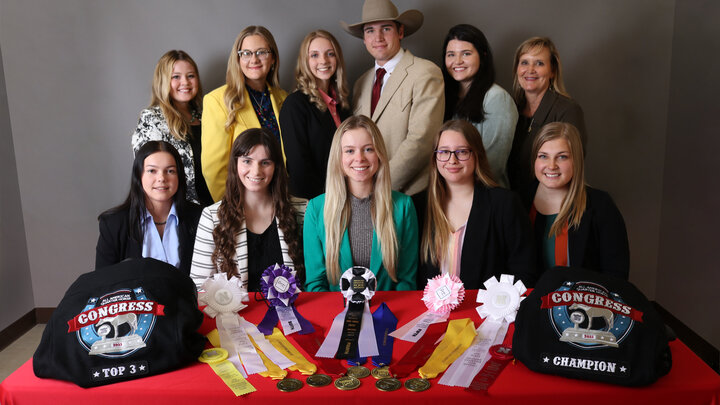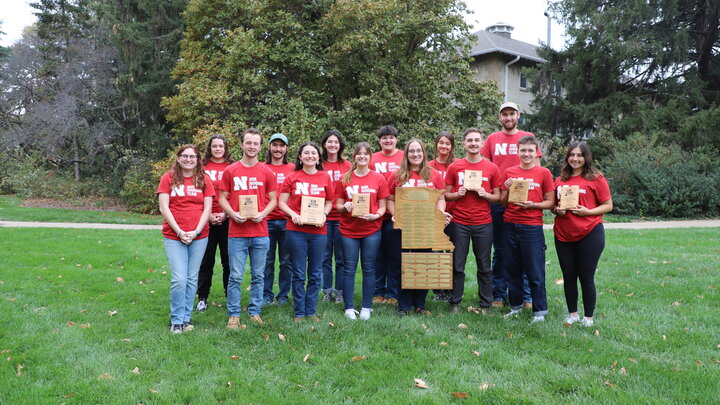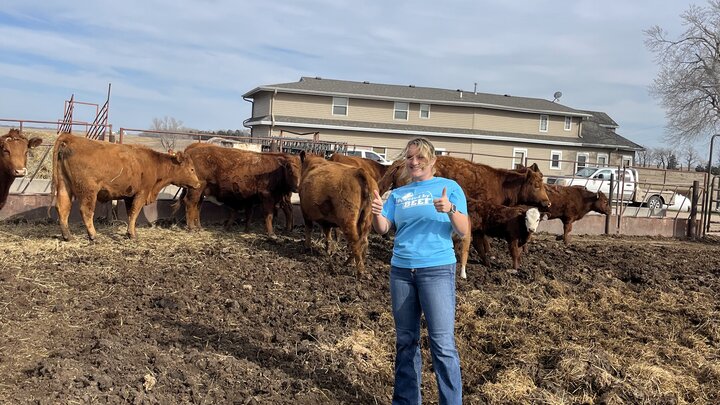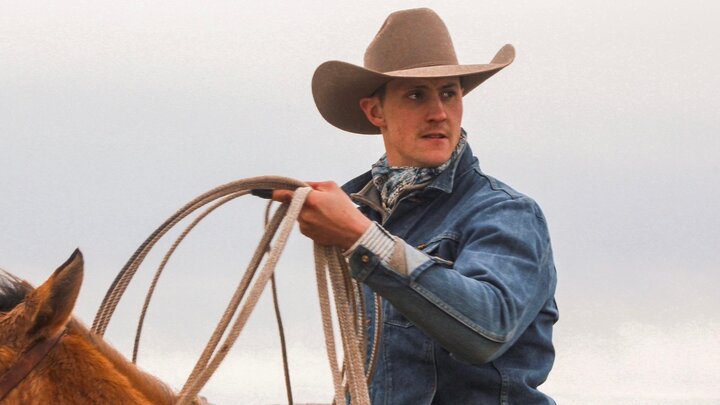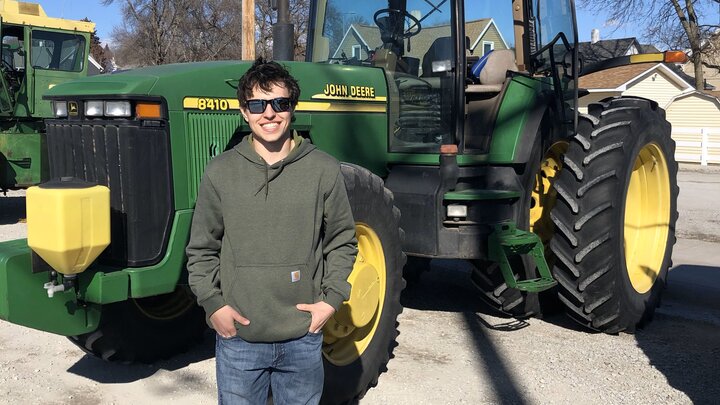Interviews with Caleigh Iwanski, Danielle Forster, and Kathy Anderson
There is a plethora of skills that are developed while traveling around the country judging horses. But coaches, alumni, and current members can all agree that communication skills and confidence are high on the list.
Caleigh Iwanski, a senior horse judging student, double majoring in animal science and grasslands systems in the Department of Animal Science and Center for Grassland Studies within the College of Agriculture and Natural Resources, respectfully. She grew up showing horses competitively and decided to try her hand at horse judging while at the university.
“In horse judging we are trying to take something that is subjective and turn it objective. It is really cool to be able to voice your opinions and those reasons,” Iwanski said.
The horse judging contest is comprised of three different divisions: halter, performance, and oral reasons. In the halter division, participants evaluate the horses for structure and muscle patterns. When judging performance classes, the contestants judge the horse and the rider in different divisions including showmanship, ranch riding, pleasure, and hunter under saddle.
The last component of the horse judging contest is giving oral reasons. When backing up their placing, students will give reasons in the rider’s point of view for horsemanship and showmanship. The rest of the reasons are constructed from the contestant’s point of view. These scores are then all added up to determine a winner.
Recent success of the UNL Horse Judging team includes:
- Fourth overall at the 2022 Husker Horse Judging Contest in Lincoln, Nebraska,
- Seventh overall at the 2023 APHA Horse IQ Contest in Fort Worth, Texas, and
- Sixth overall at the 2023 All American Quarter Horse Congress Contest in Columbus, Ohio.
Cultivating Confidence
Students who participate in extracurricular judging teams develop many skills outside of agricultural evaluation. Because of the involvement of advisors and coaches in their college career, they gain confidence and resilience following the pressures of competition.
Dani Forster is a graduate student in the Department of Animal Science at the university and competed on the UNL horse judging team from 2021 to 2022.
“I have really enjoyed being able to connect with undergraduate students and help them, in a sense, not only gain knowledge about horses but in their college life as well,” she said. “I always promote that open line of communication.”
Kathy Anderson is a professor in the Department of Animal Science and has been the faculty advisor and coach for the UNL Horse Judging team since 1991. Anderson has witnessed growth in her students as they gain skills to overcome adversity.
“There is a lot of maturity that comes along with participating in horse judging,” Anderson said. “Judging participants will get frustrated over the course of the time, and I want them to step back and take a breath.”
Anderson said that she wants her students to gain confidence in themselves so they can continue through the challenges of collegiate judging. She accredits their growth in confidence to defending their placings in verbal reasoning.
Saddling Up for Success
While placing classes can build confidence in students, the skills they gain from evaluating horses can be utilized in career paths.
Many of the professional skills gained from horse judging are developed due to being required to create oral reasoning during competitions. When students are required to defend their decisions in an organized and compelling way, they refine their public speaking ability.
“Being able to present your ideas and thoughts and defend choices on why you do things a certain way is an important skill for anyone to have,” Forster said.
Iwanski, a current team member, echoed this sentiment, saying she has personally witnessed an improvement in her public speaking skills. Iwanski believes this growth will benefit her as she enters graduate school in the fall.
"I am a much better public speaker now,” Iwanski said. "Being able to hold a conversation, meet people, and look someone in the eye while I am talking to them is something that s going to impact me forever.”
Anderson said that when students defend their placings through oral reasons, they gain not only the confidence but also the ability to better organize their thoughts.
"Students become more comfortable talking in front of a group or in front of different individuals,” Anderson said. “They are able to explain things more critically and in industry terminology.”
This ability can increase the credibility of student opinions when displaying their skills in the horse industry.
Equine Expertise
Not all horse judging students will enter the equine industry. But for those that do, they also gain the technical skills to pick horses more efficiently and accurately.
“My family owns a brood mare and we have been raising some colts ourselves,” Iwanski said. “Being able to really talk about the horse’s movement and confirmation is really important.”
Forster realizes the importance of the technical skills gained by the students who will have some sort of role in the equestrian industry.
“If you are going to go and purchase horses, you will be able to better evaluate their overall structure conformation and what to look for,” Forster said. “If you want to keep a mare back for your breeding herd or if you want to see what a stallion and mare might complement each other and fix in the future.”
Key Takeaways:
- Students who participate in the horse judging team at the University of Nebraska-Lincoln gain self-confidence and the ability to overcome obstacles because of the intense time commitment, the incorporation of oral reasons, and the pressures of competition.
- The UNL Horse Judging program helps students to gain professional skills including public speaking and industry knowledge, as demonstrated through a conversation with head coach Kathy Anderson, current participant Caleigh Iwanski, and alum Dani Forster.
